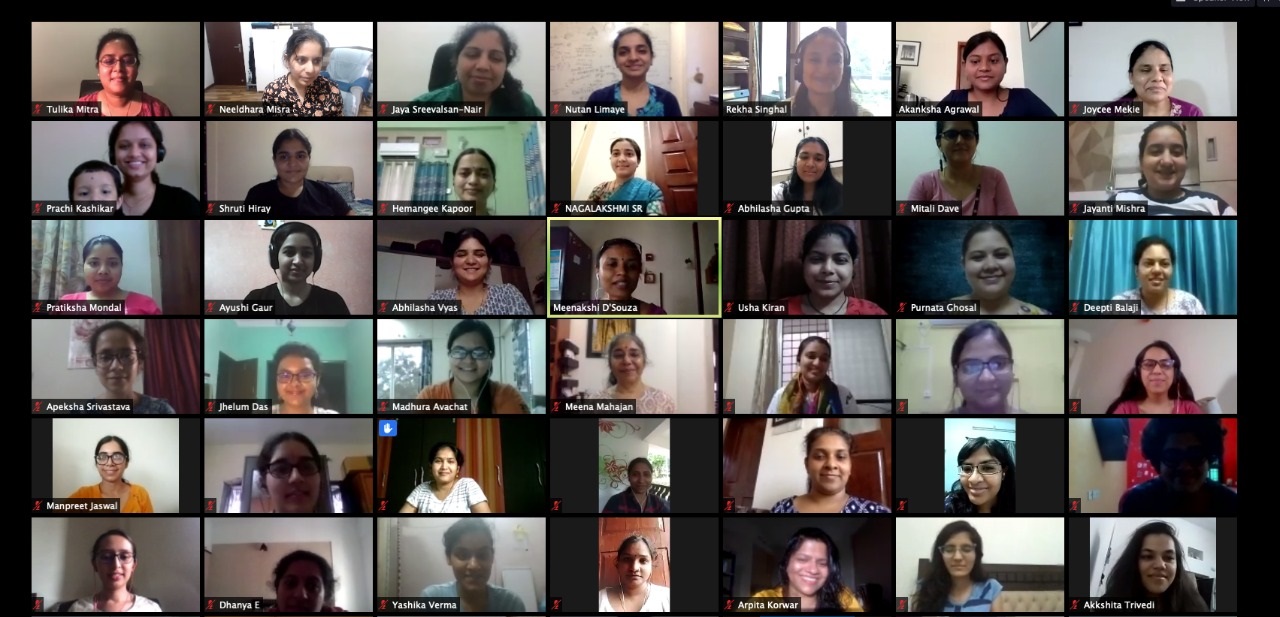The workshop was outlined with interesting interactive sessions with experienced women researchers from the field of Computer Science & Engineering from across the world with an aim to help Indian women graduate students in the field of computing deal with various situations through their graduate years and beyond.

Explaining the journey and popularity of machine learning models, Dr Sawawagi said, “Machine Learning has grown into one of the most popular fields of not just computer science but possibly the whole of science-related domains. There are thousands of real-world uses of Machine Learning models, depending on the type of inputs they receive. With the availability of a large amount of labelled data for training, gradual advancement in hardware, and optimisation of algorithm coupled with a few engineering tricks, machine learning achieved record-breaking accuracy that can even surpass the human capacity. This gave it a lot of prominence in many tasks such as object and speech recognition, translation, and so on. Machine Learning models have high memorising power and hence, offer great performance.”
She also talked about some of the challenges that need to be addressed, such as domain the adaptation problem, which can be solved with fine-tuning and retraining the model. Dr Sarawagi concluded her talk with the message that although a lot of work has been done in Machine Learning, a lot more still needs to be done, and hence it continues to be an exciting direction for further research in computing.
The second keynote talk was delivered by Dr Meena Mahajan, Professor of Computer Science & Engineering, IMSc, Chennai, on July 25, 2020. She spoke on “My Enchantment with Computational Complexity”. Dr Mahajan’s works on Matching Theory and Proof Complexity have been very influential.
During her talk, she shared her interesting experiences from her professional life and the influence of recreational mathematics and puzzle-solving on her research work. Explaining her topics of interest, she said, “Computational complexity is all about understanding how much resource is needed to solve a particular problem. The resource can be anything — time, space, number of steps taken by a computer program to give the result or solve a problem. It is concerned with proving facts about objects that are unknown to us by using techniques like logical reasoning and arguments.” She also talked about two sub-areas of computational complexity she has worked on – circuit complexity and proof complexity.
Concluding her talk, she said, “Every unknown (lower bound) in complexity theory is a puzzle yet to be solved. Finding solutions is a highly creative activity, and there is a place for everyone to work in this field.”
There were a total of sixteen (16) presentations and interactive sessions by different women experts over the course of three days, with opportunities for the participants to engage in one-on-one networking/discussion with senior researchers, both from industry and academia, to simulate the ambiance of a real conference during the breaks. They guided the students in various aspects of their graduate careers, such as finding a research topic, honing their reading and writing skills, achieving work-life balance, opportunities beyond graduate school and much more.

The event also featured a film screening and three contests (including a social media contest, a logo contest, and a computer art contest). Results will be announced on the event website around mid-August.
This news was covered by some of the leading Indian newspapers and media agencies. Click on the links below to read more.

